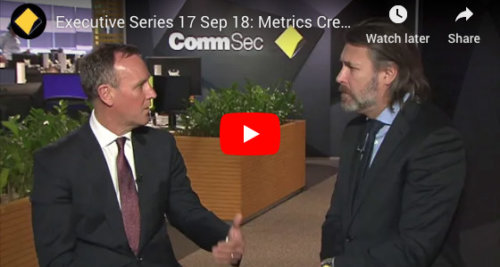Treasurer considers axing commission loophole for listed funds

Treasurer Josh Frydenberg has set up a snap review to consider closing a loophole that allows financial advisers or stockbrokers to receive lucrative commissions for selling poorly performing listed investment funds to mum and dad investors.
In a move set to send shockwaves through the financial services industry, Mr Frydenberg has directed Treasury to hold a four-week consultation on the merits of the commissions, known as “stamping fees”, paid by fund managers, for selling their newly floated listed investment entities.
“Public consultation will allow the government to make an informed decision on whether to retain, remove or modify the stamping fee exemption in order to ensure that the interests of investors are protected and capital markets remain efficient and globally competitive,” Mr Frydenberg said in statement late on Monday afternoon.
It follows revelations by The Australian Financial Review that the corporate regulator secretly warned Treasury that dozens of listed investment funds that have raised tens of billions of dollars from retail investors are rife with “poor performance” and are paying “conflicted” commissions to financial advisers for “worse” returns.
Since the Coalition government in 2014 weakened Labor’s Future of Financial Advice (FOFA) conflicted remuneration rules, listed fund managers resumed paying sales commissions – usually between 1 per cent and 3 per cent but sometimes higher – to advisers.
The combined listed investment company (LICs) and listed investment trust (LITs) market then rapidly doubled to about $50 billion and there is a series of more planned public listings in the pipeline.
‘Hard to justify’
The Australian Securities and Investments Commission privately advised the government its exemption was “hard to justify” for commissions paid by fund managers for selling LICs and LITs, according to ASIC documents published in January by the Financial Review following a Freedom of Information (FOI) request.
ASIC revealed the Coalition ignored the regulator five years ago opposing the government watering down Labor’s conflicted commission laws for financial advisers, including warnings it would be to the “detriment” of consumers.
Any further change on the commission exemption for listed funds would be a political backflip by the Coalition government – which Labor is demanding.
An LIC or LIT is an ASX-listed company or trust set up to invest in a portfolio of securities managed by a fund manager and its shares are traded on the Australian Securities Exchange.
Retail investors are buying LICs and LITs with exposure to equities, hedge funds, private equity, direct loans and leveraged junk bonds. Low interest rates have exacerbated the riskier “reach for yield” among investors.
There is already a blanket commission ban on unlisted managed funds and other exchange traded funds (ETFs).
The Hayne banking royal commission recommended all exemptions for conflicted remuneration – including life insurance – be reviewed by 2022, but Mr Frydenberg is accelerating the process for listed investment entities.
“The Morrison government is today announcing that Treasury will undertake a four-week targeted public consultation process on the merits of the current stamping fee exemption in relation to listed investment entities,” Mr Frydenberg said.
“Stamping fees are an upfront one-off commission paid to financial services licensees for their role in capital raisings associated with the initial public offerings of shares.”
Real estate investment trusts (REITs) will be included in the Treasury review.
Deep concern
The announcement follows the Treasurer’s receipt of a strongly worded letter from Stephen Jones, Labor’s financial services spokesman, which argued closing the so-called loophole was a “matter of urgency”.
“I am writing to raise our deep concern about the commission-based selling of shares and units in listed investment companies and trusts creating a real risk for ordinary investors,” said the January 23 letter.
“Following the banking royal commission, we have a much clearer picture of how conflicted remuneration – such as stamping fees – can lead to bad outcomes for ordinary investors.”
Advisers and brokers at National Australia Bank, Taylor Collison, Morgans Financial, Crestone Wealth Management, Evans Dixon, Ord Minnett, Bell Potter Securities, Morgan Stanley and Patersons Securities have been among the biggest sellers of listed funds.
High-yield loan investor Metrics Credit Partners launched a $638 million top-up offer of its ASX-listed fund on Friday, called the MCP Master Income Trust.
Metrics will pay six advisers – Escala, Morgans, Ord Minnett, Wilsons, Bell Potter and Taylor Collison – a selling commission of up to 2 per cent.
The deal comes just days after the first high yield, or sub-investment grade, bond fund launch of the year, Neuberger Berman’s $749 million raising for its $926 million listed investment trust called the NB Global Corporate Income Trust.
Neuberger will pay selling and transaction fees of over $18.3 million to five advisers – Evans & Partners, NAB, Morgans, Ord Minnett, and Bell Potter –which represents about 2.45 per cent of the money they pull from investors.
ASIC has cast doubt over whether advisers were satisfying their best interests duty under the law when recommending LICs and LITs that are paying conflicted sales commissions.
Significant negative returns
The Financial Review revealed this month that ASIC will audit stockbrokers who are being paid commissions by fund managers and investigate the misselling of poorly performing listed investment funds to retail investors.
The probe is expected to include audits of brokers’ and advisers’ “statements of advice” to clients to assess whether their product recommendations breached the “best interests duty” law.
A confidential ASIC analysis for Treasury of 48 LICs and LITs that floated on the stock market since 2015 found a “significant proportion” had negative returns, with a cumulative return of negative 6.1 per cent since inception, including two funds that were delisted due to fraud.
A consultant for the Listed Investment Companies and Trusts Association, Dominic McCormick,has disputed the accuracy of some of ASIC’s internal analysis that was published under FOI. He noted the alleged “misselling crisis” was grossly exaggerated and the key issues were misunderstood.
However, several other high-profile fund managers and financial advisers have called for the government to fix the loophole, including Magellan Financial Group’s Hamish Douglass, PM Capital’s Paul Moore, Will Hamilton and Koda Capital’s Paul Heath.
Alan Kirkland, chief executive of consumer group CHOICE, said: “When some parts of the FoFA laws were wound back in 2014, CHOICE warned that this would lead advisers and brokers to recommend investment options based on the commissions that come with them, rather than what’s best for their clients.”
“The final report of the royal commission said that exceptions to the ban on conflicted remuneration should be eliminated, and this evidence demonstrates how important it will be to do just that when the government reviews the quality of financial advice in two years’ time.”
Labor’s Mr Jones rejected a suggestion that FOFA’s best interests duty would be sufficient legislation to weed out any conflicts of interest in financial adviser pay arrangements.
“You cannot rely on the best interests duty to do the work,” he said.
“They are devolving a decision to individual advisers which should be made by Parliament.”
by John Kehoe and Aleks Vickovich | January 28, 2020 | Financial Review
Other News
Metrics Income Opportunities Trust (ASX: MOT) | Investor Information
Metrics Income Opportunities Trust: income today with upside potential Metrics Credit Partners CEO and Managing Partner Andrew Lockhart recently spoke…
Metrics Master Income Trust (ASX: MXT) | Investor Information
Metrics Master Income Trust (ASX: MXT): disciplined income through diversified corporate lending Metrics Credit Partners CEO and Managing Partner Andrew…
INSIGHTS
MCP Income Opportunities Trust (MOT) lists on ASX
Sydney, 29 April 2019: The Trust Company (RE Services) Limited (ABN 45 003 278 831) (Responsible Entity) is the responsible…
MCP Master Income Trust wins Lonsec Listed Fund Award
The award came a year after MXT was listed on the Australian Securities Exchange





